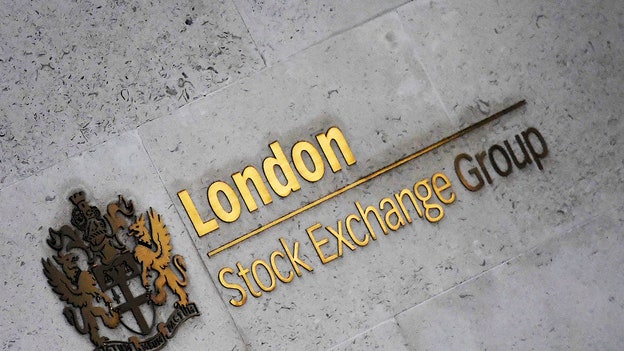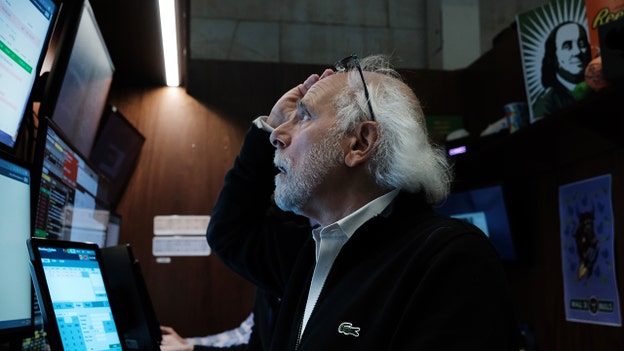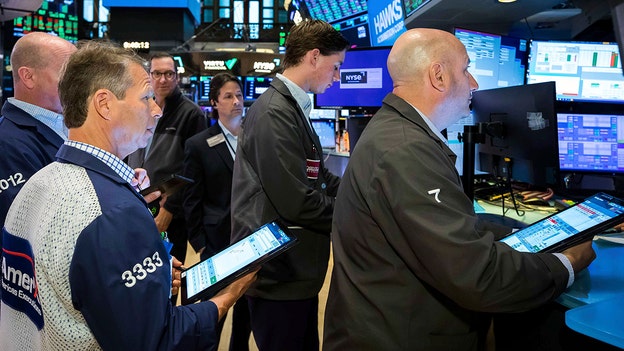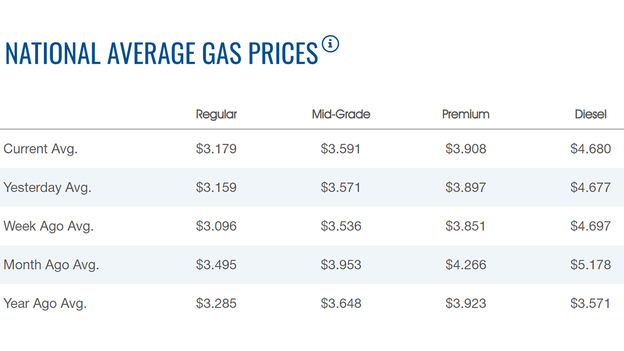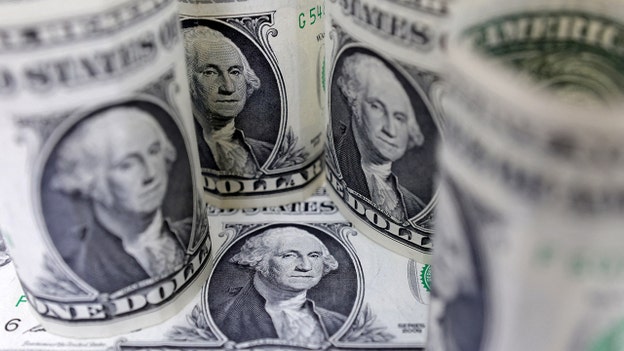MARKET NEWS: Stocks losing year, Southwest fallout continues, Tesla’s troubles
The S&P 500 dropped 20% for the year but energy bucks the downtrend, Southwest Airlines CEO mea culpa tour as delays improve after a turbulent week. Tesla's wraps worst year on record. FOX Business is providing real-time updates on the markets, commodities and all the most active stocks on the move.
Coverage for this event has ended.
The Securities Commission of the Bahamas said on Thursday that its holding FTX assets worth $3.5 billion based on market pricing at the time of transfer on a temporary basis to deliver them to customers and creditors who own them.
FTX's Bahamas unit's digital assets were transferred to digital wallets under the exclusive control of the commission in November soon after the company and its hedge fund Alameda Research and dozens of affiliates filed for U.S. bankruptcy.
Upon completion of the transfer, FTX founders Sam Bankman-Fried and Gary Wang no longer had access to the tokens that were transferred or frozen, the executive director of the commission, Christina Rolle, said in an affidavit filed with the Bahamas Supreme Court.
"All transferred assets were and remain under the sole control of the commission," Rolle said.
U.S. stocks closed lower on Friday rounding out the worst year for stocks since 2008 as investors wrestle with sky-high inflation and a recession that could deepen in 2023. In commodities, oil fell 6.7% this year to $80.26 per barrel amid volatility plagued by Russia-Ukraine and China.
2022 Returns:
Nasdaq Composite: -33%
S&P 500: -19%
Dow Jones Industrial Average: -8.8%
Americans collecting Social Security will see an average $140 monthly increase in their benefit amount thanks to an inflation-driven cost-of-living adjustment (COLA).
Higher Social Security payments are a bit of a Catch-22. They can reduce eligibility for low-income safety net programs like food stamps and can push people into higher tax brackets. More significant payments, essentially, do not necessarily result in more money in people's pockets.
| Symbol | Price | Change | %Change |
|---|---|---|---|
| CVX | $178.98 | 0.66 | 0.37 |
| DVN | $61.17 | 0.13 | 0.21 |
| MRO | $27.06 | 0.28 | 1.05 |
| OXY | $62.60 | 0.32 | 0.51 |
The energy sector is led stocks higher in 2002 as petroleum prices pushed shares of petroleum prices higher.
Chevron, Devon Energy, and Marathon Oil have jumped at least 39% in positive territory, as Warren Buffett’s Occidental Petroleum exploded over the same time with a 115.44% spike into the green.
Analysts say the global economy will be a big factor in what will happen in the sector in 2023.
| Symbol | Price | Change | %Change |
|---|---|---|---|
| NKLA | $2.27 | -0.13 | -5.23 |
Nikola is selling up to $125 million of senior convertible bonds to investors, with an initial closing for the sale of $50 million on or about Dec. 30.
The sale will raise net proceeds of $46.5 million, the electric truck maker said in a securities filing.
The notes will be convertible to common stock at any time on or after Jan. 9, 2023 and carry an interest rate of 5%, which would increase to 12.5% upon the occurrence and during the continuance of an event of default.
In June 2022, the company completed a private placement of $200.0 million aggregate principal amount of unsecured 8.00% / 11.00% convertible senior PIK toggle notes, which will mature on May 31, 2026.
Nikola had $283 million of long-term debt and finance lease liabilities as of Sept. 30 and cash and cash equivalents of $404 million.
President Joe Biden on Thursday signed a $1.7 trillion spending bill that will keep the federal government operating through the end of the federal budget year in September 2023, and provide tens of billions of dollars in new aid to Ukraine for its fight against the Russian military.
Biden had until late Friday to sign the bill to avoid a partial government shutdown.
The funding bill includes a roughly 6% increase in spending for domestic initiatives, to $772.5 billion. Spending on defense programs will increase by about 10%, to $858 billion.
Lawmakers provided roughly $45 billion for Ukraine and NATO allies, more than even Biden had requested, an acknowledgment that future rounds of funding are not guaranteed when Republicans take control of the House next week following the party's gains in the midterm elections.
The bill also includes about $40 billion in emergency spending, mostly to help communities across the U.S. as they recover from drought, hurricanes and other natural disasters.
| Symbol | Price | Change | %Change |
|---|---|---|---|
| SILO | $3.42 | 0.55 | 19.16 |
Silo Pharma announced positive interim data from its dose optimization study of SPU-21 joint homing peptides for subcutaneous administration of anti-arthritic agents. Silo Pharma is pursuing a development plan utilizing its liposomal joint homing peptides as a potential therapy for rheumatoid arthritis (RA).
“We believe that the positive results of these latest tests show that our peptide with DEX given subcutaneously was effective in controlling arthritis progression,” said CEO Eric Weisblum.
U.S. stocks registered early losses Friday winding down a tough year for investors with the S&P 500, the broadest measure of the market, down over 19%. In commodities, oil hovered at the $78 per barrel level.
A Democratic-controlled U.S. House of Representatives committee released six years of former President Donald Trump's tax returns to the public on Friday in an extraordinary move days before Republicans are due to take control of the chamber.
Release of Trump's redacted returns for 2015 through 2020 caps a multi-year battle between the Republican former president and Democratic lawmakers that was settled only last month by the U.S. Supreme Court.
House Ways and Means Committee Chairman Richard Neal requested the returns in 2019, arguing that Congress needed them to determine if legislation on presidential tax returns was warranted.
Republicans said the move could lead to the political weaponization of individual tax returns and warned that party members who take over the panel next month would face pressure to pursue a similar path against high-profile Democrats.
Trump, who took office in 2017, was the first presidential candidate in decades not to release his taxes. He sued the committee to try to keep them private but the U.S. high court ruled in the committee's favor.
The records show Trump's income and tax liability fluctuated dramatically from 2015 through 2020, during his first presidential bid and subsequent term in office. They show Trump and his wife Melania Trump claimed large deductions and losses and paid little or no income tax in several of those years.
| Symbol | Price | Change | %Change |
|---|---|---|---|
| SJR | $26.39 | 0.23 | 0.88 |
| RCI | $45.05 | 0.67 | 1.51 |
Canada's antitrust tribunal approved Rogers Communications Inc's $20 billion Canadian dollars ($14.77 billion) bid for rival Shaw Communications Inc, lifting a 20-month-long block on the merger that would create the country's second largest telecom firm.
The ruling on late Thursday dismissed the Commissioner of Competition's plea to oppose the merger, which has been seen as a test case for the country's ability to foster competition amid growing worries of consolidation in sectors ranging from telecoms to banks.
The two companies had appealed the tribunal after the competition bureau rejected Shaw's proposal to sell Freedom Mobile Inc to rival Quebecor Inc's Videotron unit for $2.85 billion Canadian dollars to facilitate the deal.
It said Quebecor was not a viable competitor with the merged entity. However, in its Thursday ruling, the tribunal said such a sale would allow Videotron to expand in new markets and ensure competition remains robust.
Britain's main stock indexes ended Friday's shortened trading session lower, but the commodity-heavy FTSE 100 outperformed many of its global peers in 2022, in a year that saw markets roiled by the Ukraine war, inflation and concerns of recession.
The FTSE 100 slipped 0.8%, with losses of between 1% and 2.7% in consumer staples, energy and industrial stocks weighing on the index.
Analysts cautioned the finish is a forewarning of fresh turbulence ahead for 2023.
"The FTSE 100 is more of an outward looking global index that does not reflect the fundamentals of the UK economy," Victoria Scholar, head of investment at interactive investor, said in a note.
Scholar said the index benefited this year from energy stocks and miners. The sectors gained 41.8% and 23% for the year, respectively.
"As central banks still seem set on the path of hiking interest rates further, the turmoil which has roiled financial markets is set to continue and as global growth worries rise, the international focused FTSE 100 will not be immune to the headwinds," said Susannah Streeter, senior investment and markets analyst, Hargreaves Lansdown.
Reuters contributed to this report.
U.S. stock futures are down across the board ahead of the opening bell on Friday after a Thursday rally sent the major benchmarks into positive territory.
The Dow Jones Industrial Average futures is off roughly 128 points, or 0.38%, while the S&P and Nasdaq futures are down approximately 0.58% and 0.98%, respectively.
Year-to-date, the Dow remains off around 8.30%, the S&P is still off around 19.19% and the tech-heavy Nasdaq is still roughly 33.13% lower as tech stocks continue to struggle.
Pre-market, shares of Meta are approximately 1.55% lower, Apple is off roughly 1.25%, as Microsoft and Nvidia slip nearly 1.10% and 1.93%, respectively.
In commodities, West Texas Intermediate crude futures slipped 0.40% to $78.09 a barrel, as gold dropped 0.07% to $1,824.80 an ounce.
As Elon Musk battled for Twitter, some argue Tesla took a back seat. Now, with the stock on pace for its worst year ever, investors and analysts are calling for Musk to get back to his roots.
U.S. equity futures were trading lower Friday morning, giving back gains from the prior session.
The major futures indexes suggest a decline of 0.3% when trading begins on Wall Street.
Stocks will trade for a full day, while bonds will have an early close of 2:00 p.m. ET. Equities and bonds will not trade on Monday as the markets observe the New Year holiday.
Oil prices traded higher on Friday and were on track to post their second straight annual gains.
U.S. West Intermediate crude traded around $78.00 a barrel. It is on track to rise 4.5% in 2022, following a 55% gain last year.
Brent crude futures traded around $82.00 a barrel. Brent looked set to end the year with a 7.6% gain, after jumping 50.2% in 2021.
On the economic schedule, the Institute for Supply Management’s Chicago Purchasing Managers’ index for December. This closely watched gauge of Midwest business activity is anticipated to edge up to 40.0, rebounding slightly from a much weaker-than-expected reading of 37.2 in November.
In Asia, Tokyo's Nikkei 225 ended little changed. It had an annual loss of almost 10%. The Hang Seng in Hong Kong added 0.2%. It is off more than 14% this year.
The Shanghai Composite Index gained 0.5%. The Chinese benchmark ended 2022 down more than 14%.
On Wall Street, the S&P 500 rose 1.7% to 3,849.28. The Dow Jones Industrial Average gained 1% to 33,220.80. The Nasdaq composite added 2.6% to 10,478.09.
Each major U.S. index is headed for a loss in December. The S&P 500 Index will end the year down about 20%.
Southwest Airlines aimed to have flights back on track Friday.
The airline only has 39 flights canceled early Friday after a turbulent week.
The airline had canceled some 2,300 flights on Thursday according to FlightAware.com.
Southwest had scrapped another 2,500 flights on Wednesday.
Oil prices traded higher on Friday and were on track to post their second straight annual gains.
Oil had a stormy year marked by tight supplies due to the Ukraine war, a strong dollar and weakening demand from China.
U.S. West Intermediate crude traded around $78.00 a barrel. It is on track to rise 4.5% in 2022, following a 55% gain last year.
Brent crude futures traded around $82.00 a barrel. Brent looked set to end the year with a 7.6% gain, after jumping 50.2% in 2021.
The price of gasoline continues to tick higher.
The nationwide price for a gallon of gasoline bumped up on Friday to $3.179, according to AAA.
The average price of a gallon of gasoline on Thursday was $3.159.
A year ago, the price for a gallon of regular gasoline was $3.285.
One week ago, a gallon of gasoline cost $3.096. A month ago, that same gallon of gasoline cost $3.495.
Gas hit an all-time high of $5.016 on June 14.
Diesel has been rising, but remains below $5.00 per gallon to $4.680, but that is still a far cry from the $3.571 of a year ago.
The dollar was on track for a winning year, getting a boost from the Federal Reserve.
The greenback is looking at its best performance in seven years, thanks to the Fed's aggressive monetary policy tightening.
The U.S. dollar index, which measures the greenback against a basket of currencies, has surged more than 8% this year, the most since 2015. It was last firm at 103.99.
The Fed has raised rates by a total of 425 basis points since March to curb surging inflation.
The fact that the Fed may not have to continue raising so aggressively has led the dollar to a pullback, falling over 7% this quarter, according to Reuters
The Bank of Japan in the face of a hawkish Fed, has spelled pain for the Japanese yen. It has fallen more than 13% year to date.
The euro is on track for a more than 6% fall this year, pressured by a combination of weak eurozone growth, the war in Ukraine and the Fed's hawkishness.
Gold prices were headed for a second consecutive yearly loss as aggressive rate hikes by the Federal Reserve cut into the bullion's appeal.
Bullion was headed for an annual decline of 0.5% as the dollar emerged as the preferred safe-haven asset amid the Fed's hefty interest rate hikes.
The rise in the dollar index made gold expensive for foreign currency holders.
Gold prices have risen nearly $200 from a more than two-year low hit in September and were on course for their best quarter since June 2020, on hopes that the Fed could slow its pace of rate hikes, according to Reuters.
The Fed raised interest rates by 50 basis points (bps) in December after four consecutive hikes of 75 bps each.
Silver and platinum were both headed for a yearly rise, while palladium was headed for an annual decline of over 4%.
Bitcoin was trading around $16,000, after snapping a four-day losing streak.
For the week, Bitcoin was trading lower by 1%.
For the month, the cryptocurrency was down nearly 3% and down 64% year-to-date.
Ethereum was trading around $1,100, after losing more than 1% in the past week.
Dogecoin was trading at 6 cents, after losing more than 7% in the past week.
Live Coverage begins here







